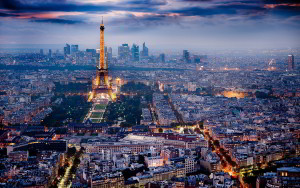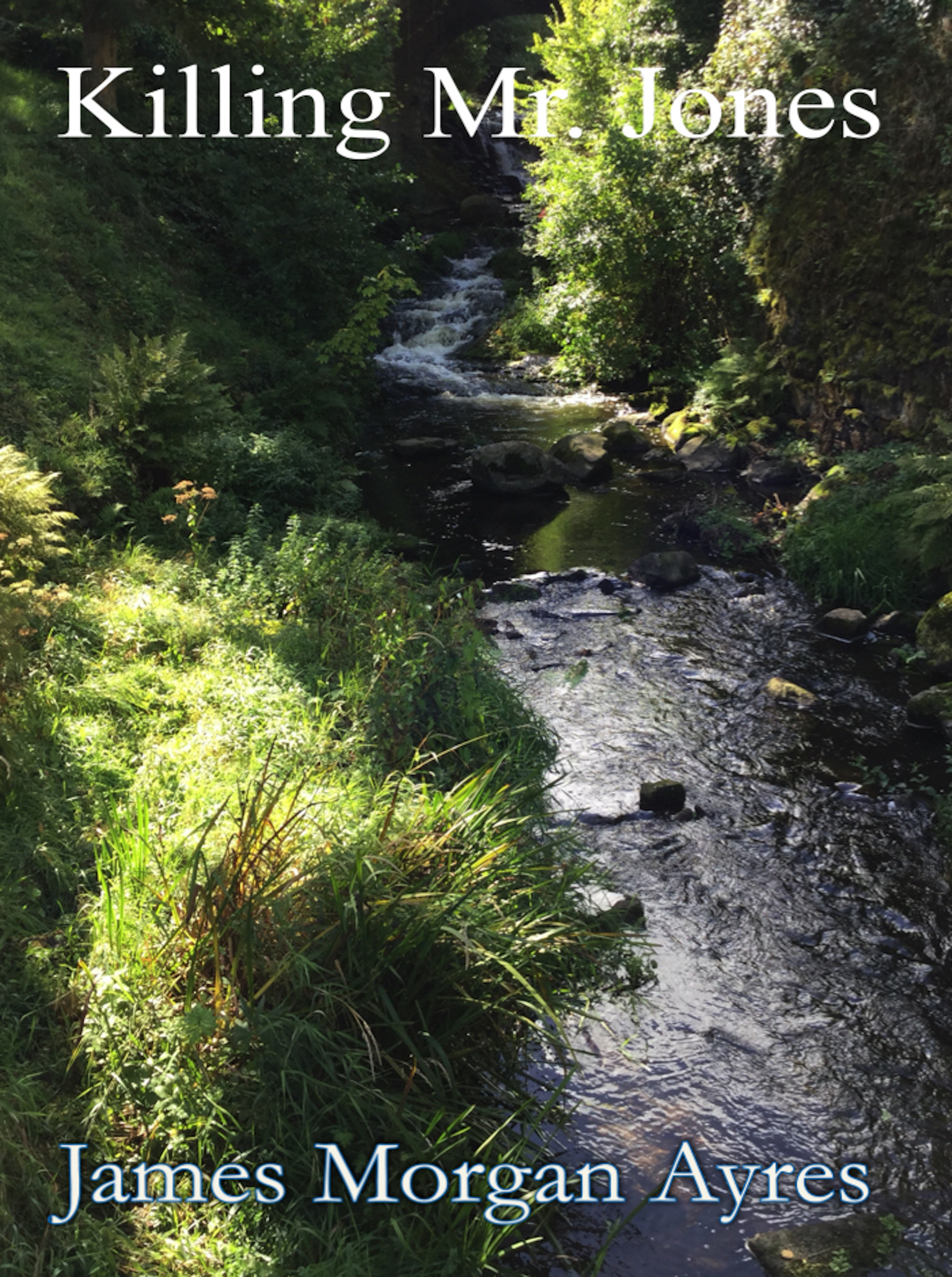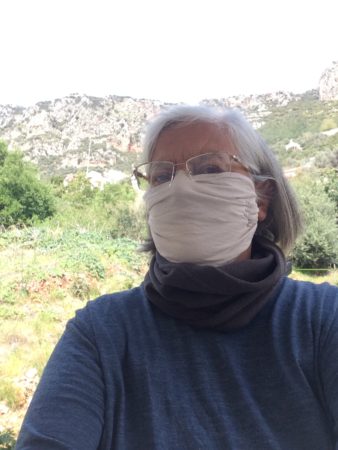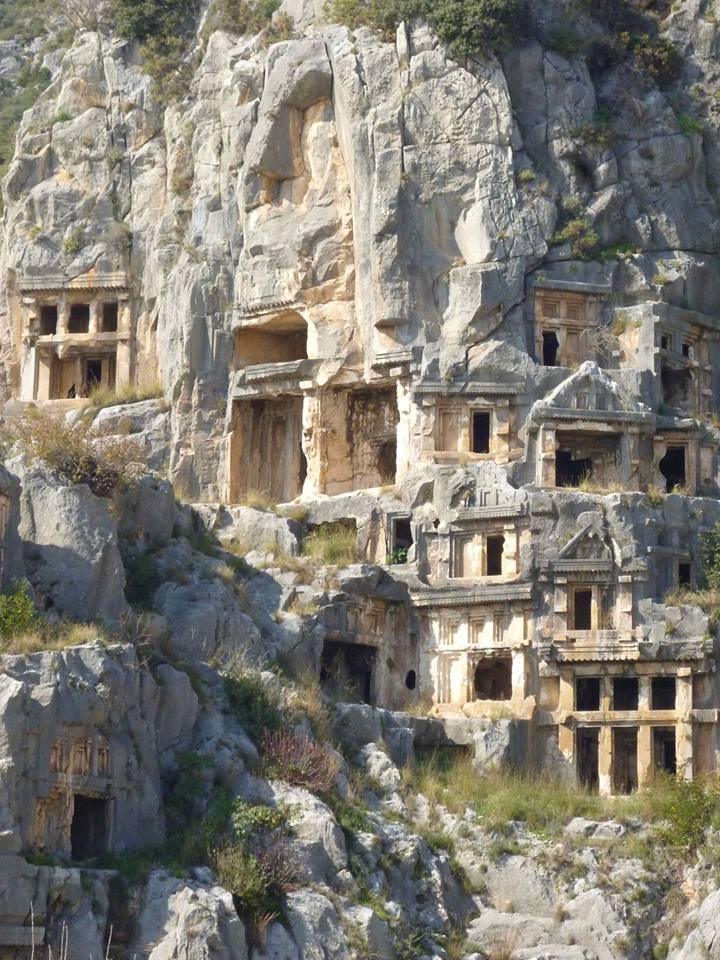
After traveling the Camino de Santiago across northern Spain, and for a time joining the fraternity of The Way, after traveling the length of Portugal, after Seville with its otherworldly beauty, after revisiting Barcelona, we returned to the farmhouse hidden in the green heart of fair France. During autumn’s golden days I wandered the countryside, returning to the house to sit on the terrace and think about the things we had done and seen, and about the deep and abiding connection I feel for France, and for Paris. I’ll write about Spain and about the Camino another day. Now I’m thinking about Paris.
I first arrived in Paris on an sunny spring day in 1968 riding a powerful silver and blue Triumph motorcycle. After flashing at speed down Boulevard St. Germain I slid to a halt in front of Café de Flore. In those days Flore and nearby Duex Magot were transitioning to tourist joints, but were still gathering places for musicians, artists, writers, intellectuals, and elders of the tribe.
A tiny Irish girl with a lion’s mane of red hair and wearing jeans and a sheepskin vest sat astride the gas tank in front of me. Sitting tight on the seat behind me, was a wild hearted dark eyed girl in a black leather motorcycle jacket and knee high motorcycle boots. Red swung a leg over the tank, slid to the ground, and ran her fingers through her hair. The dark eyed girl dismounted. They turned to one another and hugged and kissed. As I unwrapped the silk scarf from my face and unzipped my Belstaff jacket they threw their arms around me and each in turn kissed me, deeply. Disentangling myself, I kicked out the kickstand with my English riding boot, dismounted, and arm in arm we went to the sidewalk terrace to claim a table. Style matters. A striking women with sharply intelligent eyes dressed all in black began to applaud. She might have been Simone de Beauvoir. Possibly. Many in the crowded outdoor cafe followed her example and also applauded. I was twenty-four.
Like countless others I had come to see the beauty of Paris, to experience this living work of art, to visit the shrines of letters, art, and philosophy, the birthplace of The Enlightenment, the places where the great writers and artists of the 20th Century lived and worked. I came to be to be part of what was happening in Paris at that time, and, possibly, to fall in love. We lived for a while in the traditional Paris garret, drank cheap red wine in a bar with legionnaires from the French Foreign Legion and with them sang Je ne Regette Rien without understanding what the song meant to the legionnaires.
We ate couscous in Algerian restaurants, argued politics with dedicated communists, and got caught up in student demonstrations. In 1968 someone was holding down a button marked: crazy. John Lennon was singing about a bloodless revolution and the Russians were rolling tanks in Prague. The rattle of gunfire continued in Vietnam. In Memphis Tennessee, on a leafy spring day, Martin Luther King had been assassinated. Crosses burned and blood ran red in Alabama churchyards. In Paris students barricaded the streets and fought pitched battles with the police. Right at that moment Paris was one of the centers of world revolution. I was never more than a small part of great events, but I was there, and being there helped to shape my life.
I returned to Paris many times over the years. I worked and lived there for short periods, never long enough. ML and I went to Paris on our wedding trip and fell in love again. Each year on our anniversary, no matter where in this wide world we find ourselves, we drink the wine we had on our wedding trip and promise each other, “Next year in Paris.”
We brought our two younger sons to Paris many times. Our oldest was always otherwise occupied. One summer when the two boys were eight and twelve we bought rail passes and the four of us rattled around Europe for months like college kids. One night in Paris, Justin, who was eight, and I walked hand in hand through night streets, looked at the art on the fence around the Luxembourg Gardens, stopped by the window of a toy store with handmade wooden trains in the window, and listened to street musicians at St. Germain. At midnight we sat on the left bank of the Seine tossing pebbles and watching the last of the Bateau Mouches as it lighted the dark waters with rippling illumination. Justin looked up at me and asked, “Is this a magic city.” “Yes, I said, “it is.
One year Justin and I flew from rainy Seattle and spent the better part of the summer banging around Europe in a tiny rented car. After weeks traveling England, Holland, France, Germany, Italy, and Spain, we landed in Prague, which at that time was undergoing dramatic change. One day, a week or so before Justin’s fifteenth birthday, both of us tired and resting in a café I asked him where he wanted to go next. “Home, he said. “I want to go home.” Thinking he meant the cabin near Seattle, or where he had grown up, Los Angeles, and thinking our summer was over, I asked, “Really.” “Yes,” he said. “I want to return to Paris.”
Many of my friends also love Paris. Some, like us, feel it’s their second home. Some visit infrequently and find a little magic each time. Others live nearby and take a train to Paris to shop, or for dinner, or a concert, or a play. Still others live in Paris and only leave in August. There’s always something happening in Paris. In summer the city brings in tons of sand and turns the banks of the Seine into a plage for those who can’t get away to the beach. In deepest winter Paris has ‘white nights,’ turning on all the city lights for all of each night, and there are strolling musicians and hot mulled wine. On spring nights there is no more romantic city in this world. One old friend saved for a year to visit Paris for a month and loved every minute of her stay. Her sister who accompanied her spent most of her days in her hotel room and refused to eat anything but croque monsieur’s – grilled cheese sandwiches – because “the food was all weird.” Everyone finds their own Paris.
There is discontent and poverty in Paris, but there is a humane and well functioning social system and no one starves. There are neighborhoods where Arabic, or Yoruba, or Chinese is spoken more often than French. There is bigotry, but less than I’ve found in the other forty or so countries in which I’ve worked or lived, including my own. Black Americans have fled to Paris to escape discrimination for over a century. Many Black G.I.s found acceptance and stayed on after the war. The list is long of Black American artists, musicians and writers found a new home in Paris. Josephine Baker, who won Paris’s heart and served in the resistance during War II, James Baldwin, Richard Wright, Chester Himes, Lester Young, Bud Powell, Nina Simone, are only a few.
I was once having lunch in a tiny Vietnamese restaurant in Montparnasse that had a steam table of various dishes when four large American young men barged in the door, each carrying an enormous backpack. They looked like linebackers on a college football team and filled the place to capacity. One looked at the food presented, turned to his companions and, evidently thinking that no one else spoke English, said, “This looks like a bunch of gook slop. We can’t eat here.” I rose, want to the small Asian woman behind the counter and said, “Please excuse the bad manners of my countrymen. They are young and foolish and have never been away from home and their mothers are not here to correct them.” She replied in excellent English, and said that it was of no importance. The young man who had spoken had the good grace to blush, awkwardly apologize, and quickly depart with his companions. Later, talking with the lady, she told me that when she and her husband had arrived in Paris they spoke no French or English, had no money, and lived in public housing. “Yes, there is a little prejudice here, but less than in most places. Less than you would find in my country if you went there as a poor person. And education here is free. There is opportunity. We own this restaurant. Paris is what you make of it.”
Paris is not just a city, it’s an idea, a symbol of light and reason, the place where the philosophy and foundations of the modern world were nurtured and developed. If you believe in the rights of man, in the equality of all men, in the right and freedom to determine the course of your own life, in freedom of expression, in freedom of, and from, religion, if you believe in democracy, if you believe that government should only exist by the consent of the governed, if you believe that each of us has the right to life, liberty, and the pursuit of happiness, you believe these things because these beliefs were birthed and nurtured in Paris by Jean-Jacques Rousseau, Voltaire, Descartes, and others, and because Benjamin Franklin and Thomas Jefferson who lived in Paris brought these ideas to the American colonies and sparked the American Revolution which led to the French Revolution, and to changing the world. If you believe in these things, Paris is part of your heritage, and the recent attack by religious fanatics was an attack on you.
Hitler ordered General Dietrich Von Choltitz, the occupation commander of of Paris to raze the city before the allies reached it. If he couldn’t have it, Hitler wanted no one to have Paris. It is unclear exactly why Von Choltitz did not obey Hitler’s command. According to legend, when Hitler called Von Choltitz from Berlin and asked, “Is Paris burning,” Von Cholititz told him that it was. The explosives that were set to destroy Paris were never detonated. Perhaps this Nazi general, a commander of the most beastial army of the 20th Century, lied to Hitler because Paris was also to him a symbol of light and reason. Perhaps this is something he discovered after doing great harm. Perhaps. Whatever the truth of the legend, the Nazi’s did not destroy the city. They never could have destroyed what Paris stands for. That was beyond their power
It is also beyond the power of the religious fanatics who have murdered so many in Paris to destroy Paris or what it stands for. Paris, and the values it symbolizes, has been attacked before. Likely the city, and those values, will be attacked again. Parisians are tough. They’ve seen worse than these pissant psychopathic murderers. Paris will endure.
I did fall in love in Paris. I fell in love with the city itself, with its narrow winding streets and wide boulevards, with its cafés and boulangeries, and museums and galleries and bookstores, with it’s flea markets and vegetable markets and grand department stores, with with the river running through its center, with its neighborhoods of people from all the world. My heart, like the hearts of millions of others, was wounded when I heard of the recent attacks in Paris. This insane attack by psychotic religious fanatics struck me deeper than the horrors that others of their kind daily inflict on the world, on the innocent, on light and reason. It did so because Paris occupies a special place in my heart, as it does for millions.You feel more pain when your lover is injured than when a stranger is injured in another country. It’s only human.

 Sun, Apr 5, 2020: Killing Mr. Jones
Sun, Apr 5, 2020: Killing Mr. Jones Wed, Apr 1, 2020: On Hoarding
Wed, Apr 1, 2020: On Hoarding Mon, Mar 30, 2020: Masks Save Lives – Covid-19
Mon, Mar 30, 2020: Masks Save Lives – Covid-19 Sun, Mar 29, 2020: Visions of Apocalypse
Sun, Mar 29, 2020: Visions of Apocalypse Fri, Aug 23, 2019: Hijacked Twitter
Fri, Aug 23, 2019: Hijacked Twitter Sun, Aug 18, 2019: The Incident
Sun, Aug 18, 2019: The Incident Sat, Aug 10, 2019: Seas and Oceans Without End
Sat, Aug 10, 2019: Seas and Oceans Without End